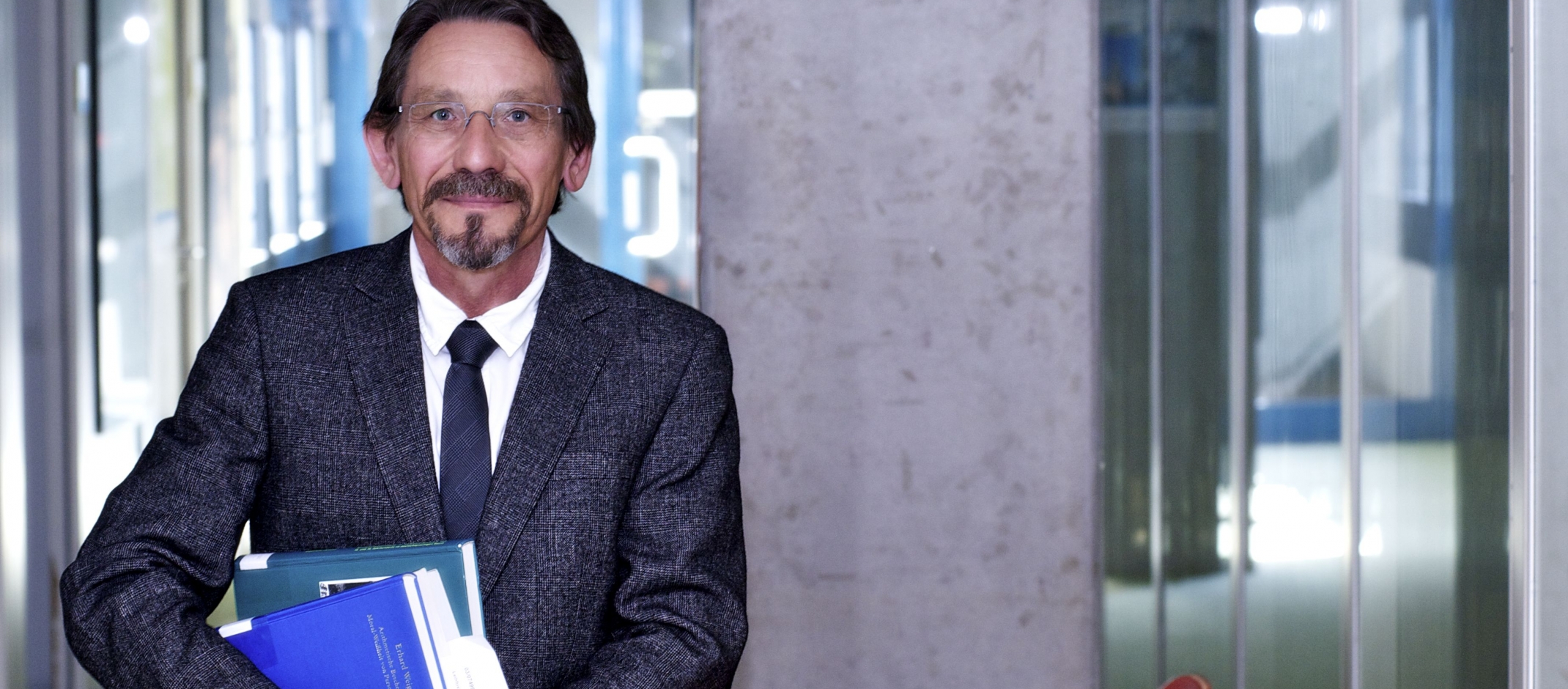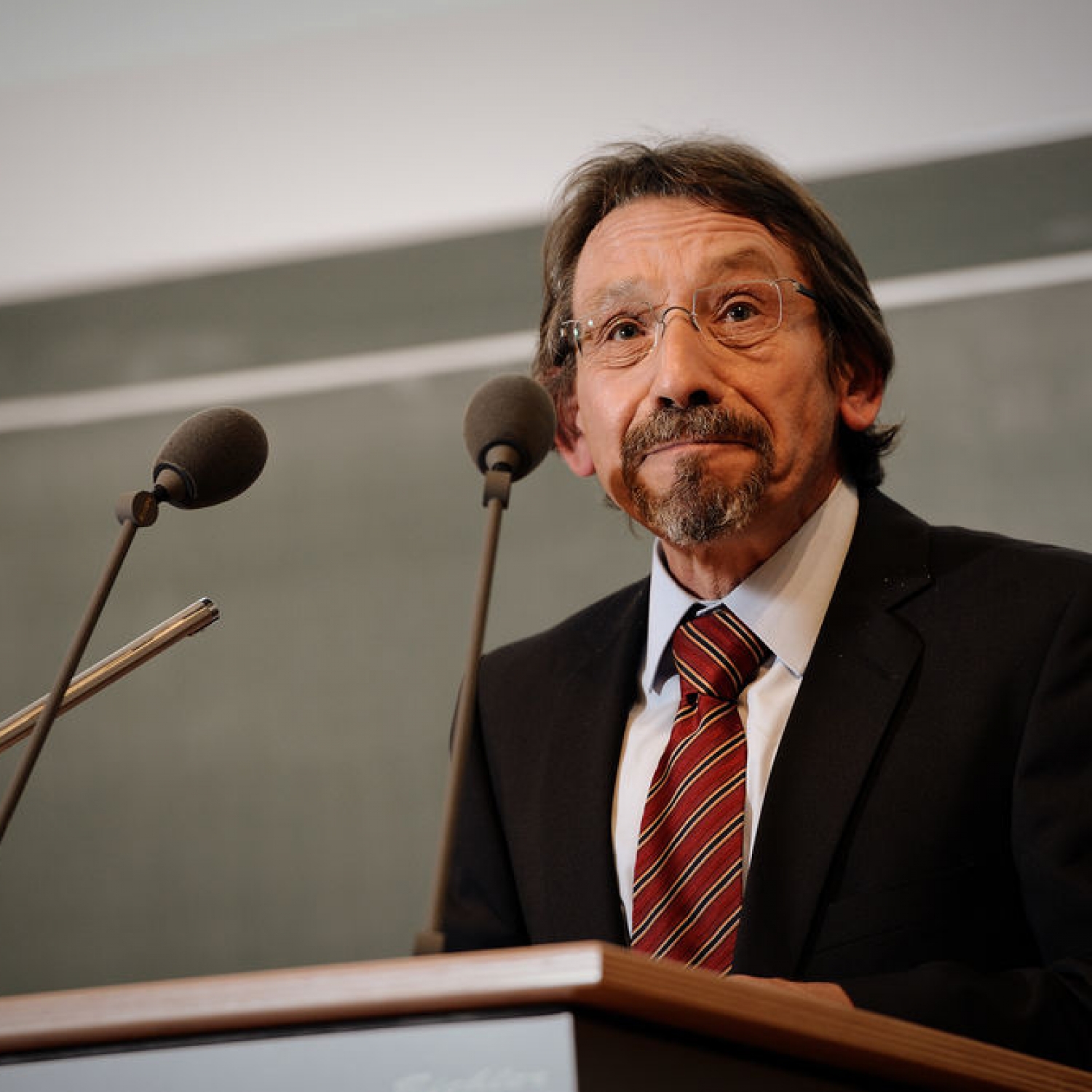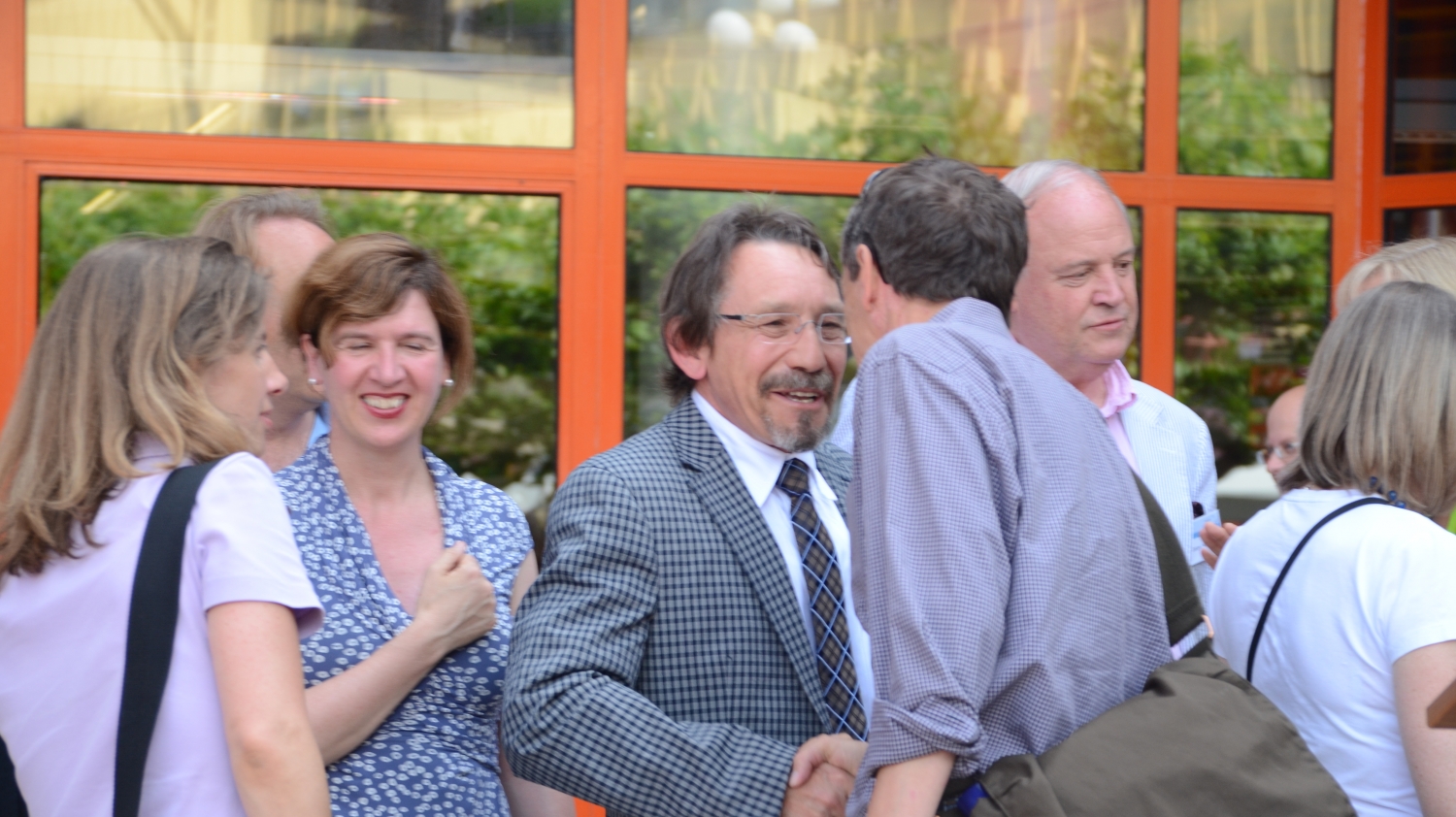Coincidences and what you make of them

How and why did you decide to pursue an academic career?
Having been born and raised in the countryside, I originally began my studies in German, history and social studies with the aim of becoming a teacher. While writing my thesis, I realized that I wanted to go on to do a doctorate. I was able to achieve this largely thanks to people who supported me at the right time and who placed their trust in me, as when I applied for funding from the Studienstiftung (German Academic Scholarship Foundation), which enabled me to pursue my doctoral studies in relative comfort.
After my doctorate, the offer to move from Erlangen to Münster, as research assistant of Hans-Ulrich Thamer, was a turning point for me. When I accepted, I was well aware that there would not be many alternatives for me other than working towards a habilitation (postdoctoral qualification) and then aiming for a professorship. Accordingly, I put a lot of effort into this.
After my habilitation, the stars aligned yet again. For instance, the fall of the Berlin Wall opened up job prospects for young habilitation scholars like me, and again, I had advocates for my cause. I thus took up my first professorship in Halle an der Saale, which was soon followed by a call to Konstanz.
Have you ever come to regret pursuing an academic career?
I never regretted it, but I also remember phases when I was rather worried and uncertain whether this career path would work out. For example, I had to discard my original habilitation topic. The archive material I needed, and which was supposed to be accessible in the GDR, was not made available to me on site. This meant that a whole year’s work was lost, and I had to find a suitable new topic. At the time, it was difficult for my colleagues to find a job, and this also worried me.
That is one of the reasons why I advocated for the establishment of junior professorships with tenure track, when I later had the opportunity to change things at Konstanz. I still find that the academic system is quite ruthless and destructive when it comes to the lives of early career researchers, even though I never suffered from this myself.
In your doctoral thesis, you worked on the peasant economy in the early modern period. How did you come up with this topic?
The topic of my doctoral thesis has nothing to do with my rural origins. Rather, as my doctoral supervisor Michael Stürmer in Erlangen thought, it was to describe the success story of state action in the Thirty Years’ War: I was supposed to study a few mandates and create a doctoral thesis out of them. For half a year, I thus sat in the main state archives in Munich, reading mandates and hoping that something could be done with them – even though personally, I was not particularly fond of this approach.
What happened then?
One day, I was somewhat frustrated, and I went to the state archives next door and asked for a tax list from 1671, which the secondary literature always said existed. And it did exist. I looked at the sources, and that evening I knew that I could write a doctoral thesis on social conditions during the Thirty Years’ War. This tax list contained very detailed information on individual farms and their economic situations: a fantastic source to learn about the peasants and their tax burdens and duties a good two decades after the end of the war. This was indeed one of those moments when I had the feeling that my life was taking a new turn.
What suited me very well was that I was able to work empirically and with a social-historical approach and, at the same time, pursue my aim of embedding my topic in the ongoing theoretical discussions on the early modern period. So, I did not write about peasants, but rather about the relationship between the peasant economy, war and state-building. The state-building process was my theoretical framework, which – in my opinion – elevated my work to a whole new level.
At the time, you were unable to pursue your habilitation on Freemasonry because the sources weren’t accessible. The topic of faith and religion in times of secularization does not strike one as an obvious alternative.
My research topics were usually the product of coincidences – and what I made of these coincidences. When I was looking for an alternative topic for my habilitation, I again came across source material in the diocesan archives in Münster, in the city archives of Cologne and in the Aachen branch of the main state archives in Düsseldorf that no one in Germany was working on at the time: wills, inventories of clergymen’s estates and in memoriam notes (Totenzettel). To me, these seemed to be promising sources for learning something about the changing religious attitudes and practices in the transition from the 18th to the 19th century and, thus, about the long process of secularization.
© Universität Konstanz"If one is looking for a common thread in my research, it would perhaps be this: searching for source material that can be analyzed with theory-based questions."
Professor Rudolf Schlögl
How did you proceed?
Of course, the concept of secularization was circulating among historians at the time, but it largely remained a buzzword, so I first looked to Max Weber – unfortunately in vain – for a suitable set of terms before discovering Niklas Luhmann’s short book on the sociology of religion (Funktion der Religion). A ray of hope for me! It told the story of the secularization of European society and modelled it analytically. I could relate my material to this.
At some point, developing Luhmann’s systems theory for historical purposes became an independent project for me. The process was now reversed. From then on, I was looking for subject areas and sources that might advance my objective of analyzing pre-modern society in terms of systems theory: the city (a topic I was working on in an externally funded network at the University of Konstanz), the court – and again religion.
As speaker for the Cluster of Excellence "Cultural Foundations of Social Integration" at the University of Konstanz, you advocated for network research projects. What are the challenges and advantages of this kind of project?
When the funding line for Clusters of Excellence was first announced, my colleagues and I saw this as an opportunity to have a structure-building influence at the university. Initially, this mission was linked to the German Excellence Initiative, and this was very important to us. A reform for the doctoral programmes, professorships with new denominations, tenure-track professorships, new study programmes, new programme structures including fellowships etc.: At the time, our ideas and experiments fortunately found the approval and support of the Rectorate. These ideas were incorporated into the university system and were partly developed further.
We used the Cluster of Excellence to make the university more dynamic. Since we were backed by the corresponding financial resources through the cluster's funding, we were able to provide powerful and effective impulses. Of course, we had to document the use of these funds, but we were free to choose what we spent them on.
Congratulations on the approval of the Center of Excellence “Cultural Foundations of Integration”
And the challenges?
In the next rounds of calls for proposals, the German Excellence Initiative, strengthened in particular by the third funding line, became an instrument for the Rectorate to steer and shape the university. Unfortunately, a large part of the innovative structural power that was initially associated with this initiative was lost in the process. What remains is a structural "surplus production" of early career researchers – and the system has failed to adjust to and deal with this situation, both politically and institutionally.
What might be done differently?
Dealing with individual lives differently would mean that universities would have to convert temporary positions into permanent ones. And, without neglecting quality control, the decision as to whether or not someone can find their place in the academic system would have to be made at an earlier stage. In this context, we should specifically consider the advancement of women. Because the perspective for women is different from that of men, particularly in the life phase where they decide for or against an academic career.
What kind of research will you pursue in the future?
My current academic project is the sum of what I have been working on in the past decades: I want to write a social history of the early modern period in Europe based on systems theory. I have completed two thirds of this project, which has developed a momentum of its own.
So far, I cannot imagine my life without a desk. But at the same time, I am glad that I no longer – as was the case for a long time – consider every minute I don’t spend at my desk as time wasted. I will cut my research down to "part-time" and focus more on my family life. Besides cycling, which I’ve been doing for many years, I’m currently learning a second sport, rowing. I really enjoy it and I’m also active in associations, which allowed for a bit of social life during the "draught" of the Covid period.
On an academic level, I would like to maintain contact with the University of Konstanz, for example as a member of the Centre for Cultural Inquiry (ZKF), the institution which emerged from our cluster.
The interview was conducted by Claudia Marion Voigtmann.
Recording of Professor Schlögl's farewell lecture from 12 July 2022:
https://streaming.uni-konstanz.de/talks-und-events/2022/abschied-schloegl/


